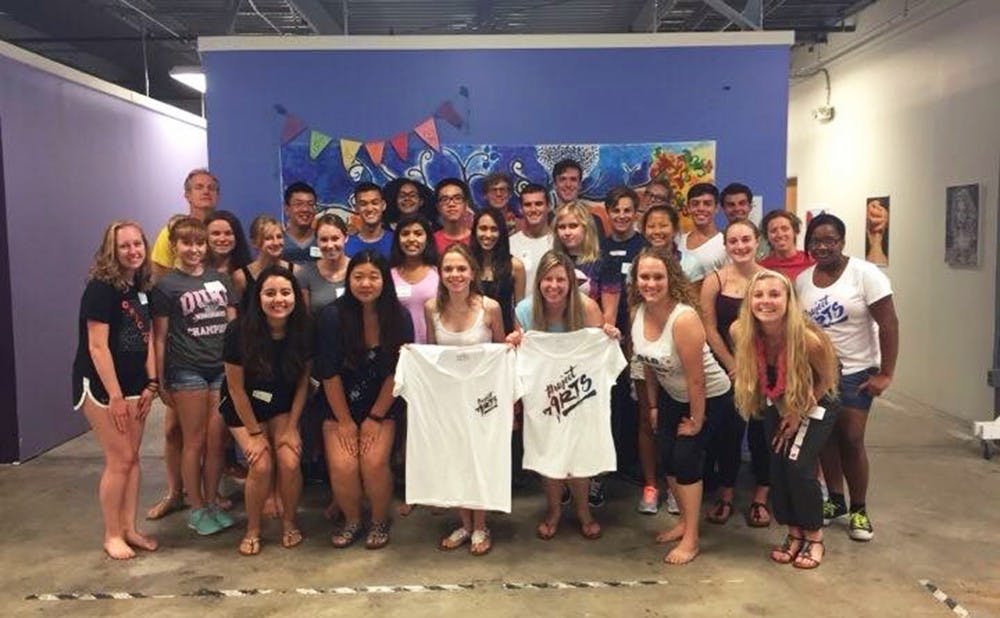After two years of development, Project Arts—the newest pre-orientation program—allowed 19 incoming freshmen to bond through creativity.
Project Arts was junior Shelby Wailes’ platform when she was elected to Duke Student Government as a freshman, an idea designed to introduce incoming freshmen to the arts scene at Duke and in Durham. Despite the five other pre-orientation programs—Project BUILD, Project Change, Project Search, Project Waves and Project WILD—Wailes felt that Project Arts would fill an interest that had not yet been met. After working with Duke administrators including Jordan Hale, assistant dean and director of new student programs, the pre-orientation program was approved last year.
“When I was applying to pre-orientation programs, I was shocked that there was a science pre-orientation program—Project Search—but there was nothing in the arts,” Wailes said.
Project Arts separated participating students into four crews based on interest—music crew, dance crew, visual arts crew and theater crew—with rotating creative writing crew leaders.
In order to experience the art scene in both Duke and Durham, students visited the Bull City Dignity Project— a documentary theater performance reflecting Durham’s history—the Nasher Museum of Arts as well as the Arts Annex.
Each year’s program will have a different theme to explore within the arts, Wailes said, and this year’s theme was classism. Each crew created a final project related to the theme, and many of the program’s crew-led discussions centered on the topic. Wailes added that the program attempted to present heavy thematic material in a more “fun” way.
Although some enjoyed the theme and found the discussions insightful, other participants did not think it was a good choice.
“I probably would have changed the theme,” freshman Chris Kleypas said. “It was more difficult for some crews to delve deep into the theme than others.”
Wailes said that next year’s theme will depend on the new leadership and feedback from this year’s participants.
In its first year, Project Arts faced a few challenges, Wailes said. Unlike other pre-orientation programs, participants in Project Arts paid for on-campus housing and did not have p-cards that allowed students to pay for meals on campus. However, DSG subsidized the program this year, and some financial aid was awarded to participants.
The budget for Project Arts was $15,275, wrote sophomore Alexis Shindhelm, who co-ran Project Arts along with Wailes, in an email. Project Arts cost $395 to participate, equivalent to Project Build, but Wailes said she hopes the cost will be lower in the coming years if housing is not factored into the equation. $7,500—nearly half the program’s budget this year—was allotted for housing the students, though the exact expenditure is not yet known, Shindhelm wrote.
Several participants noted that they appreciated being immersed in the arts and getting to know each other throughout the week.
“Seeing so many people gathered to share and celebrate their work reaffirmed that the arts are still a valid medium of discourse in the twenty-first century,” freshman Tim Kowalczyk said. “It was a great balance of making art, exploring Duke and Durham, and getting to know everyone who took part.”
Get The Chronicle straight to your inbox
Signup for our weekly newsletter. Cancel at any time.

